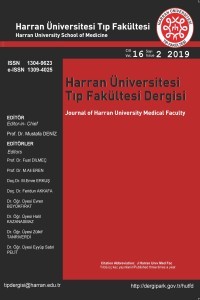
Harran Üniversitesi Tıp Fakültesi Dergisi
Yazarlar: Seyhan TAŞKIN
Konular:Tıp
DOI:10.35440/hutfd.898077
Anahtar Kelimeler:Stress,Hemodynamics,Pulmonary function test,Medical student,Exam
Özet: Background: Medical training involves a long and exhaustive curriculum in which students are frequently evaluated by examinations. Pre-examination stress is a common condition faced by students prior to exams and is one of the most widely experienced problems for medical students. The aim of the study was to assess the effects of exam stress on autonomic nervous system functions of students through cardiovascular parameters and respiratory tests. Materials and Methods: The study group consisted of 29 second-year medical students. This cross-sectional study was carried out from February to March 2020 at Harran University, Turkey. The parameters used were oxygen saturation, pulse rate (PR), systolic (SBP) and diastolic blood pressure (DBP), and pulmonary function tests. Data were collected four times during an exam period. Results: There is a statistically significant difference between the measurements of PR, SBP, and DBP at different times (p˂0.001; p=0.001; p=0.003, respectively). It was found that exam stress caused an increase in lung function. The results of correlation analysis showed a negative relationship between PR, and Forced vital capacity (FVC), forced expiratory volume in 1 second (FEV1), vital capacity (VC). Conclusion: As a result of the sympathetic nervous system induction, hemodynamic and respiratory tests increased gradually until the examination. The presence of a negative correlation between PR and FEV1, FVC, and VC indicates that physiological compensation occurs through the dynamic balance between the respiratory cycle and PR. It is thought that respiratory sinus arrhythmia contributes to this physiological compensation mechanism.